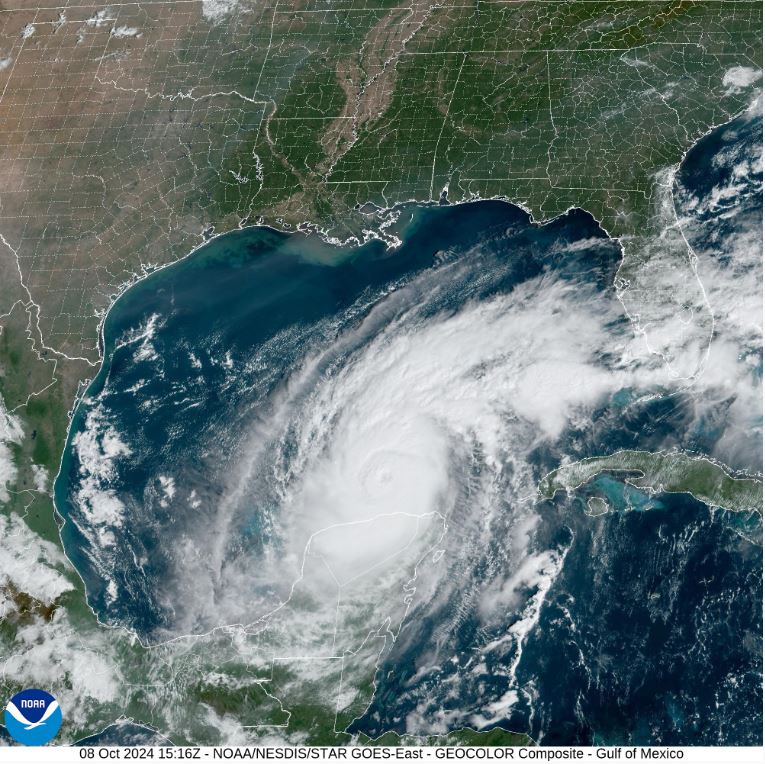Hurricane Milton continues to intensify as it approaches Florida, bringing with it the potential for catastrophic damage to condos and other coastal structures already under pressure from the state’s new inspection laws. Recent microwave images and data from Hurricane Hunter aircraft reveal that Milton completed an eyewall replacement overnight. The new, more powerful eyewall has contracted from 22 nautical miles to just 12 nautical miles in diameter, and despite this shift, the storm has not significantly weakened. In fact, it may have strengthened further with this contraction, as recent wind readings suggest.
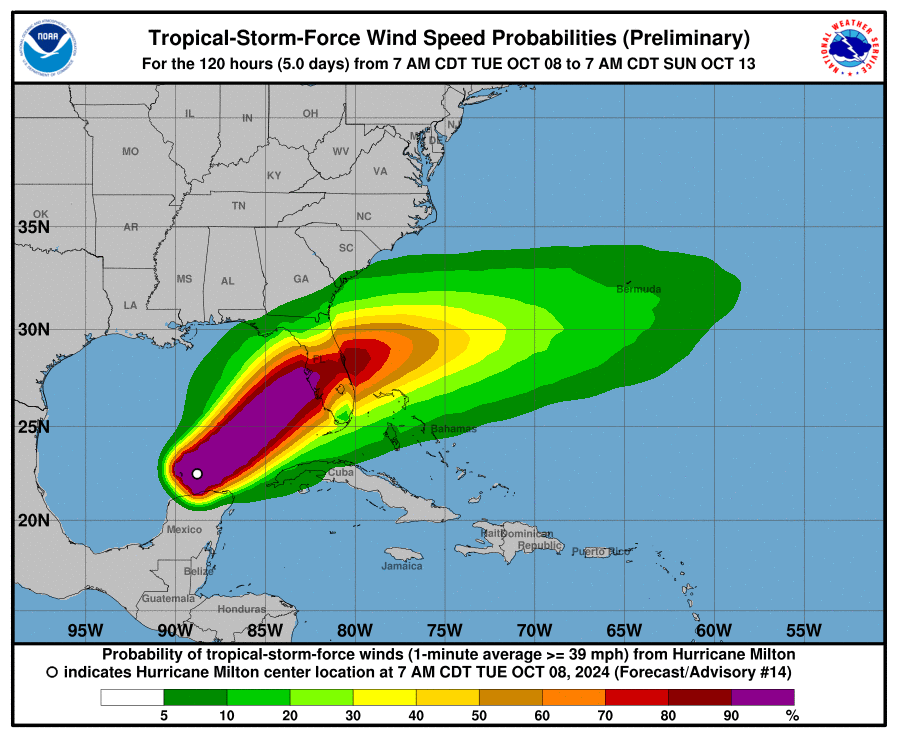
NOAA P-3 aircraft recorded an average wind speed of 156 knots in the northeastern eyewall, translating to a sustained intensity of 130 knots (150 mph). Coupled with the latest pressure reading of 929 mb, Milton’s power is undeniable as it moves east-northeast at 8 knots. The hurricane is expected to make landfall along Florida’s west-central coast by Wednesday night, though forecasts indicate a margin of error of up to 60-70 nautical miles due to potential wobbles in its path.
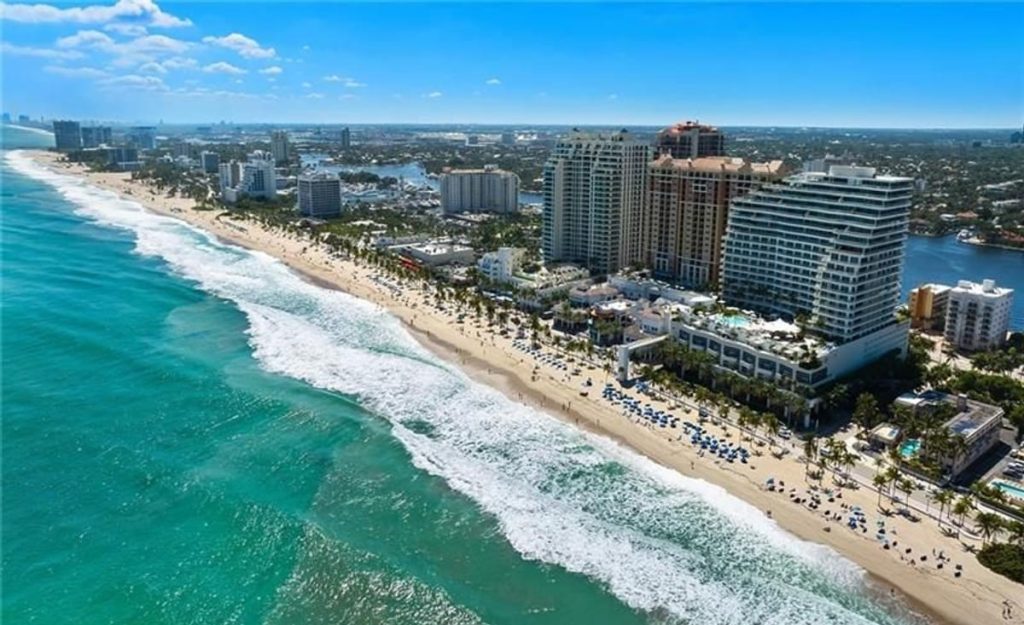
Condo owners are facing a perfect storm, both literally and figuratively. Hurricane Milton is expected to maintain major hurricane strength as it crosses the Gulf of Mexico, with tropical storm and hurricane-force winds doubling in size by landfall. The storm surge from Milton could severely damage building foundations, putting the structural integrity of Florida’s aging condos at risk. Under Governor DeSantis’ new building inspection law, these condos — three stories or taller and over 30 years old — are required to undergo milestone inspections for structural safety by the end of 2024. However, the combined force of Milton’s destructive winds, heavy rain, and life-threatening storm surge could bring hidden structural flaws to light much sooner.
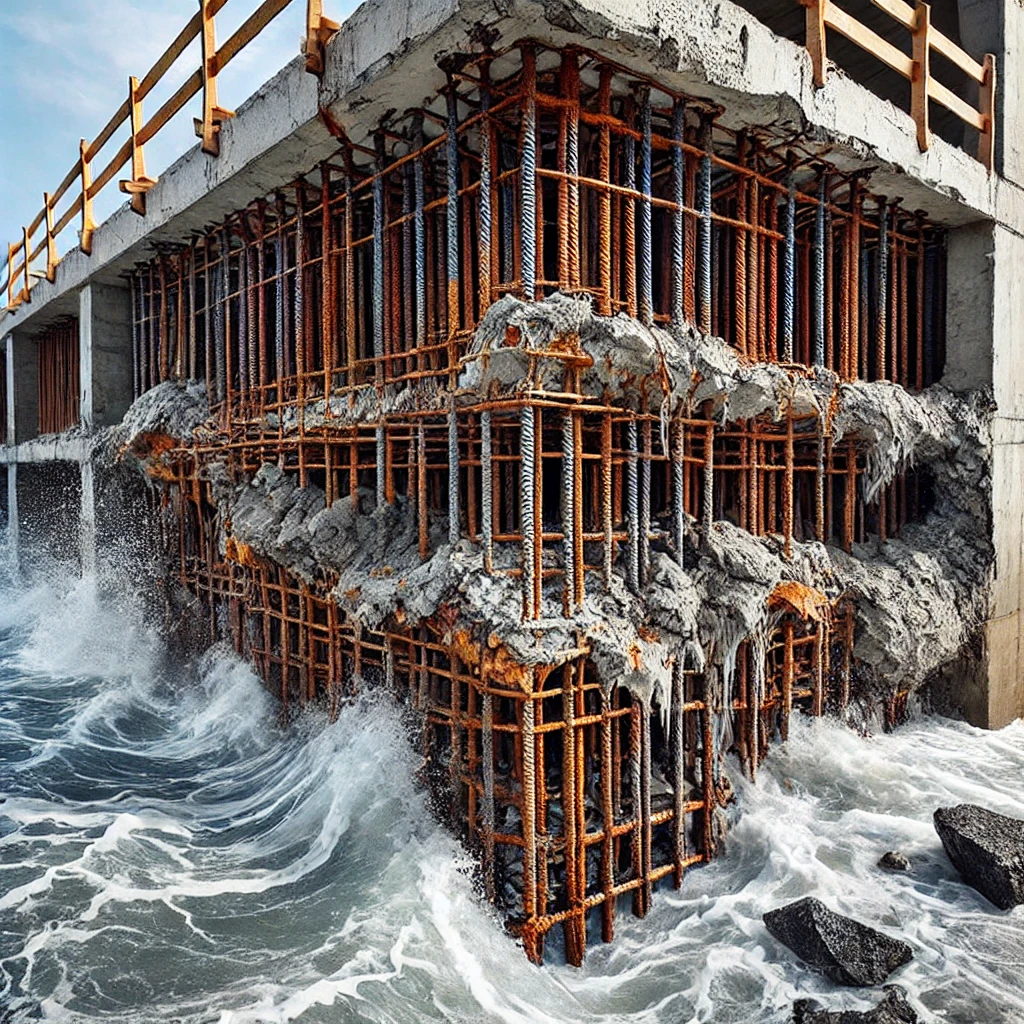
This storm poses a critical challenge for building foundations, which can be particularly vulnerable to storm surge and flooding. Saltwater intrusion can corrode steel rebar inside concrete, weakening the structure from within. Rising groundwater and coastal erosion can also undermine the very ground on which these buildings stand. Condo owners, already racing against the clock to complete mandatory inspections, may find themselves forced to evacuate if Hurricane Milton causes enough damage to trigger Phase Two milestone inspections.
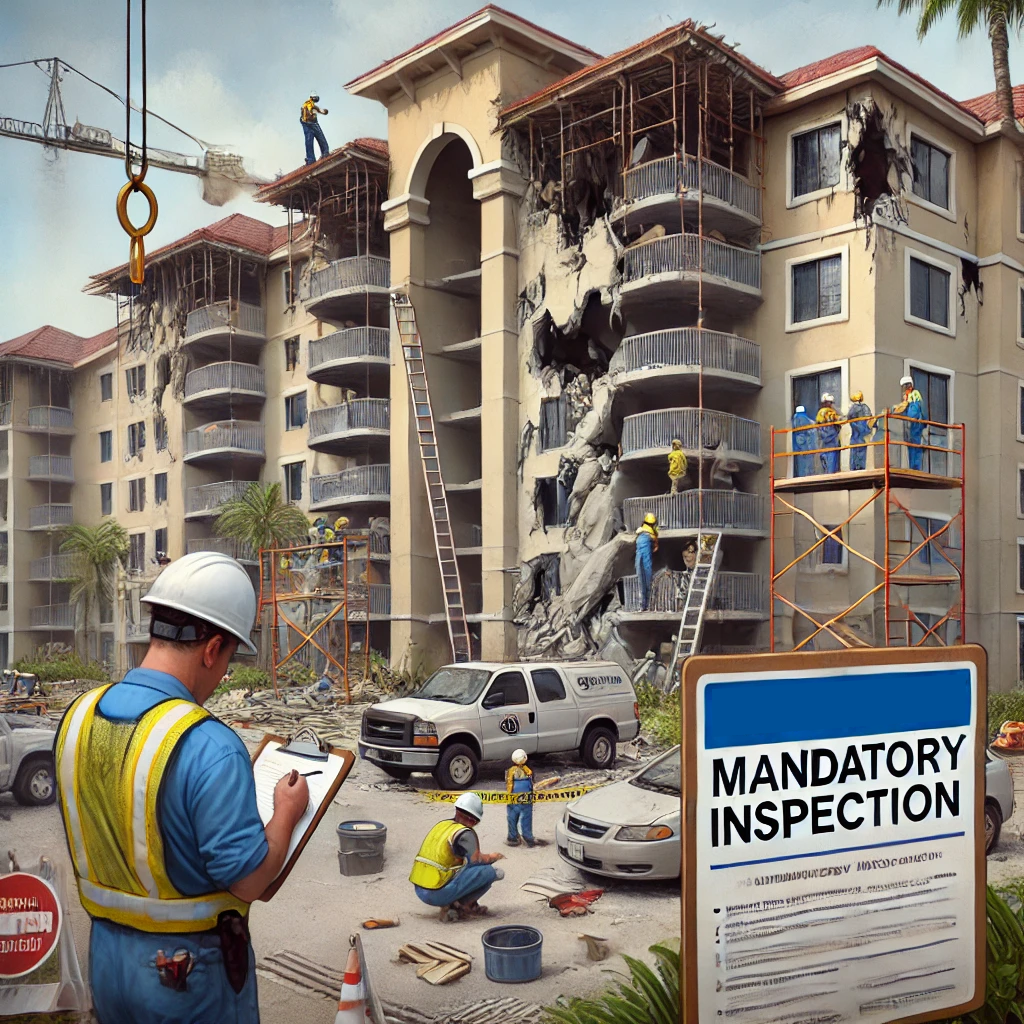
The potential for substantial structural deterioration is high, particularly if buildings were already teetering on the edge of compliance with the new laws. The storm’s aftermath could reveal cracks, bowing, or even the shearing of foundation walls, which would deem these condos unsafe for habitation. For buildings in Special Flood Hazard Areas (SFHA), the situation could become even more complicated. Under FEMA’s “49% rule,” any repairs that exceed 49% of the building’s market value would require the entire structure to be brought into compliance with current flood regulations, adding significant financial burdens to condo associations.
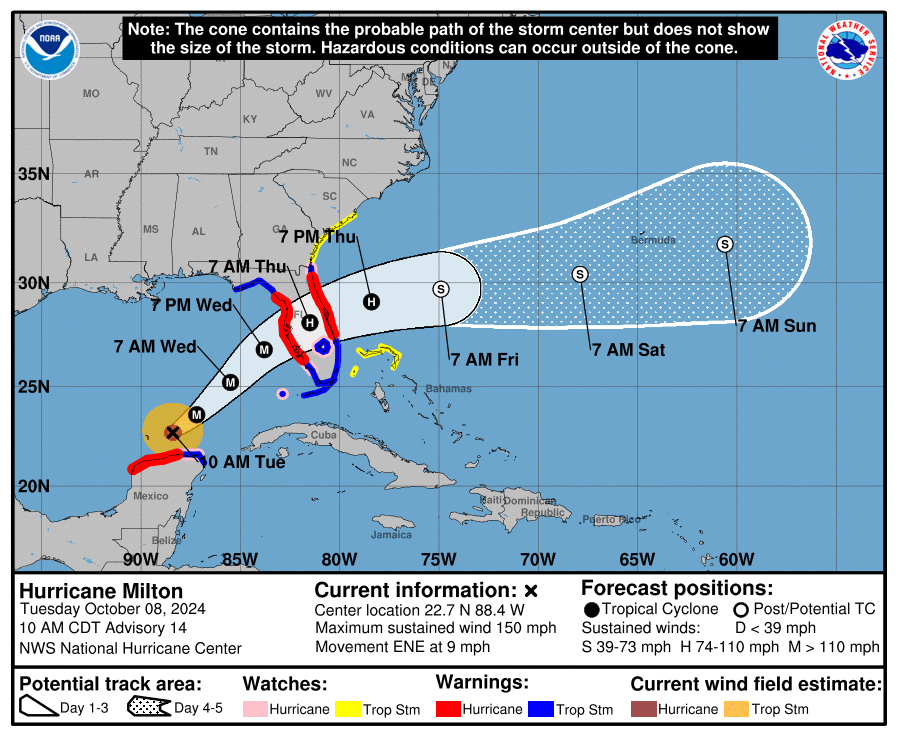
Milton’s trajectory could also intensify its impact. As it moves between a trough digging into the Gulf of Mexico and a ridge near the Greater Antilles, the hurricane is expected to accelerate northeastward later today, making it increasingly dangerous for Florida residents. Even if stronger vertical shear causes some weakening in the storm’s final hours, Milton is still predicted to make landfall as an extremely dangerous hurricane. Adding to this threat, Milton may undergo the early stages of extratropical transition, where it draws additional energy from baroclinic interactions, keeping its intensity high.
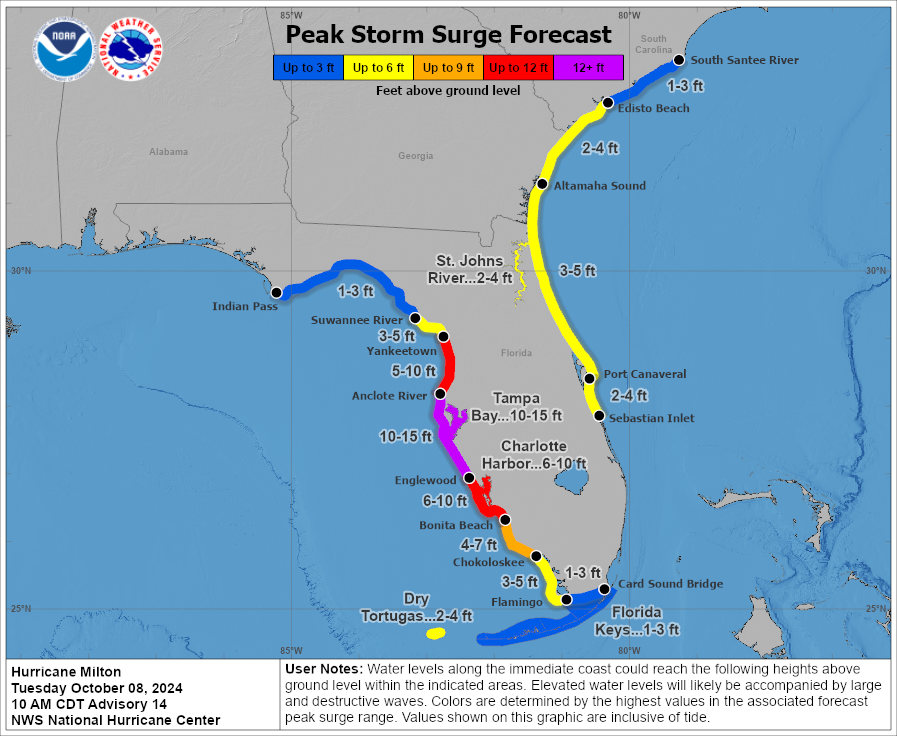
As Milton’s wind field expands, the damaging effects of the storm will extend well beyond the forecast cone. Condo owners and residents along the west-central coast of Florida are being urged to take this storm seriously. Local emergency management officials have already called for evacuations and urged preparations to be completed by today. Given the destructive potential of this hurricane, Milton could become one of the most damaging storms ever recorded for the region, especially for those already vulnerable due to aging infrastructure.
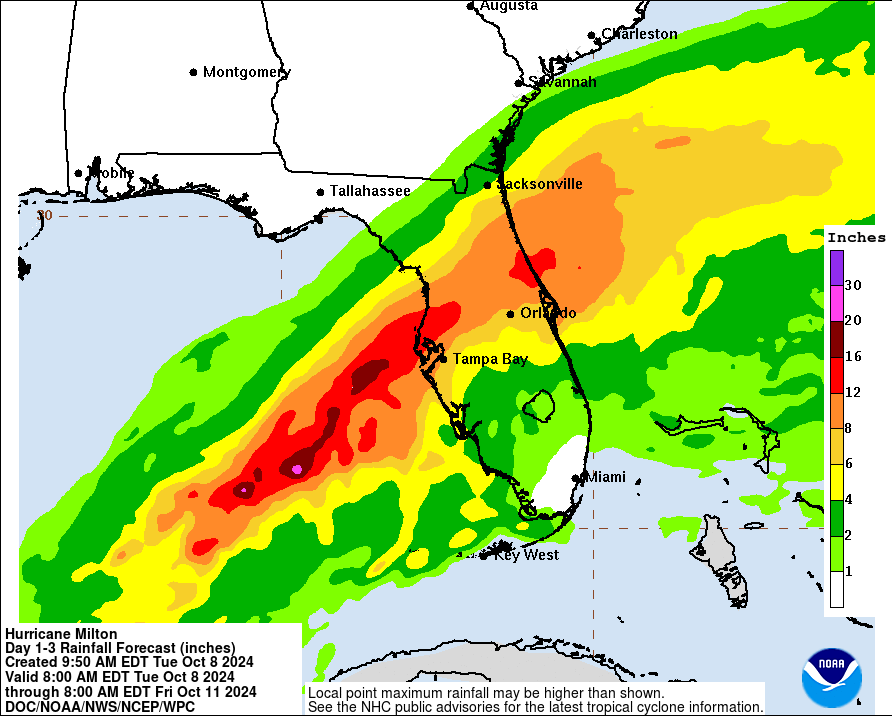
Hurricane Milton’s timing could not be worse for Florida’s condo communities, particularly with the state’s newly mandated inspection deadlines. The combination of Milton’s destructive forces and the structural vulnerability of aging buildings could result in widespread devastation, forcing evacuations, costly repairs, or worse, the permanent closure of some buildings. As the storm approaches, condo owners must act quickly to secure their properties and ensure the safety of residents.

